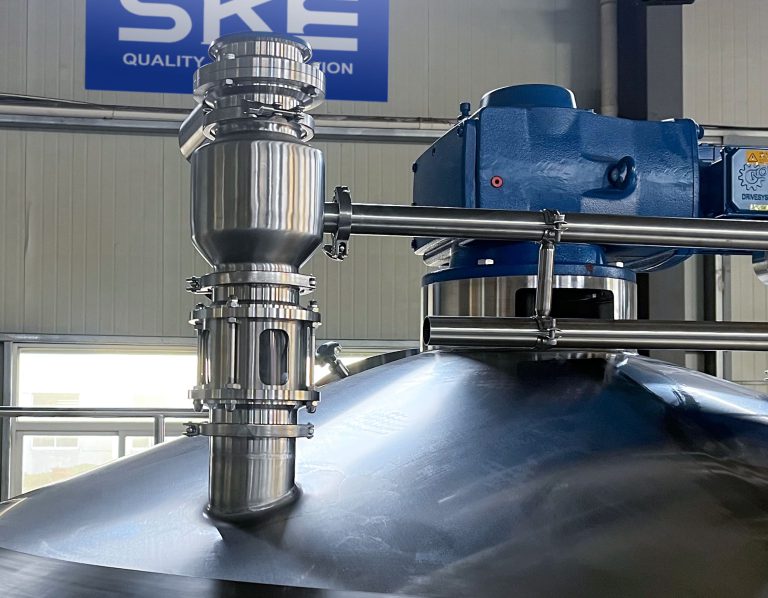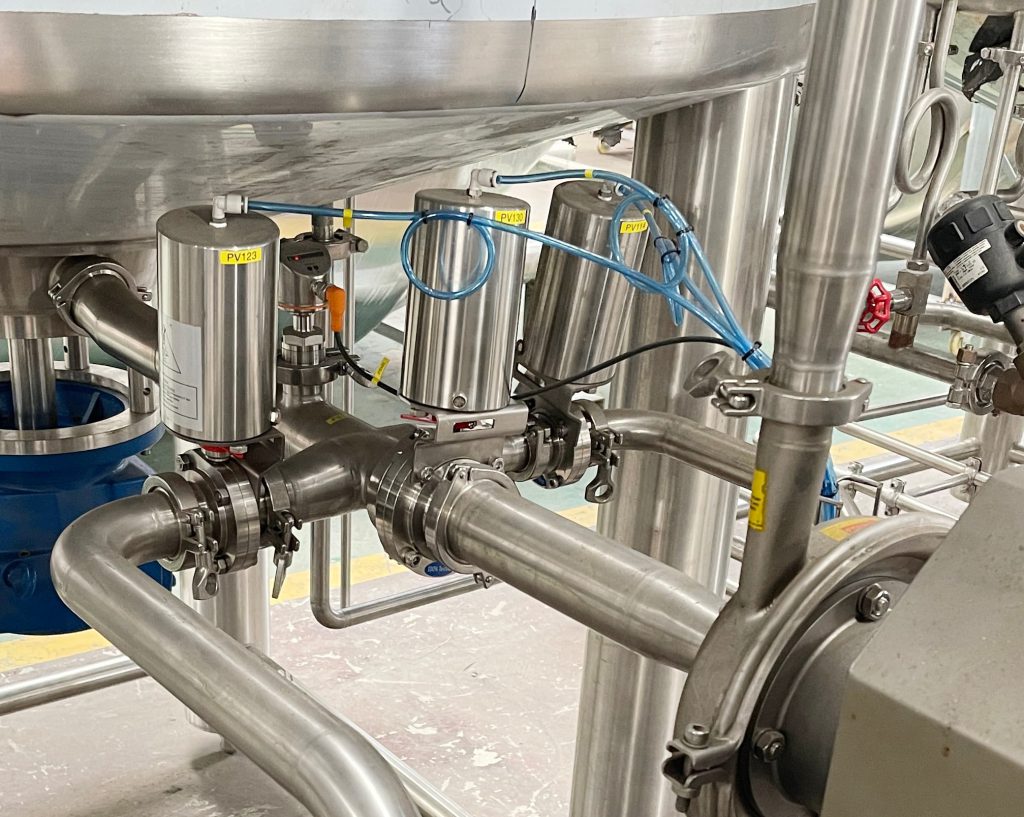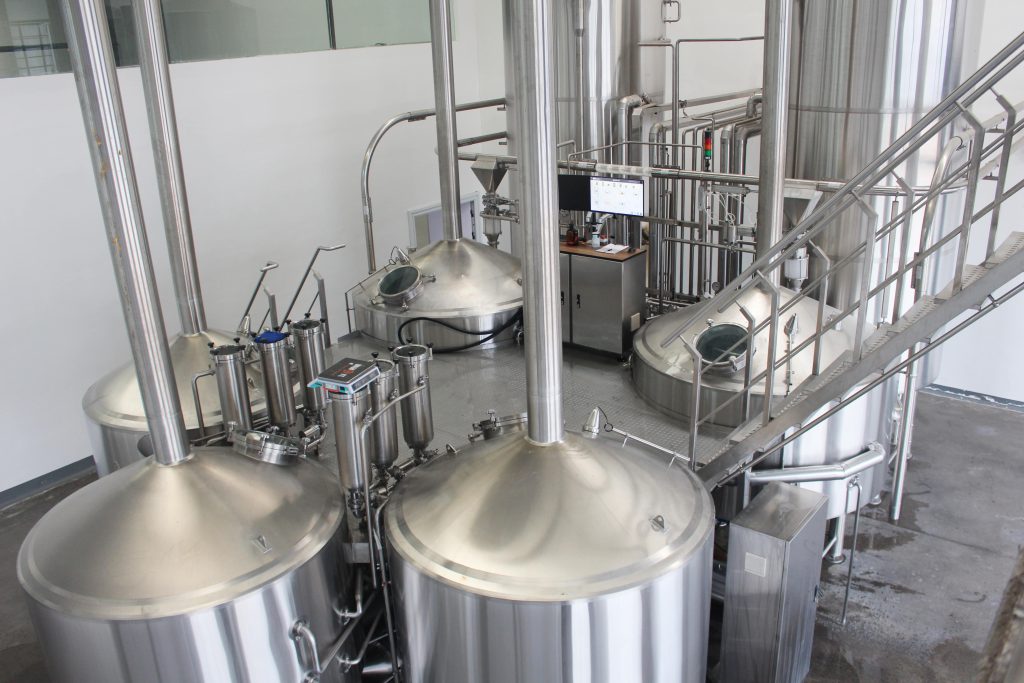Introduction

The mash agitator is a device used to stir the mash, a mixture of malted grains and water, during the mashing process. This step is essential in brewing as it helps convert the starches in the grains into fermentable sugars, which are vital for producing alcohol and flavor in beer. Without proper agitation, the efficiency of the mashing process can be compromised, affecting the quality and consistency of the final product.
In this article, we will explore why a mash agitator is indispensable in brewing, discuss different types of agitators, and provide insights into how to choose the right one for your brewery.
The Role of a Mash Agitator in Brewing
Enhancing the Efficiency of Sugar Extraction
The primary function of a mash agitator is to ensure that the mash is well-mixed. This thorough mixing helps to achieve optimal sugar extraction from the malted grains. When grains are mixed evenly, enzymes can more effectively break down starches into fermentable sugars. This process, known as saccharification, is crucial for achieving the desired alcohol content and flavor profile of the beer.
Preventing Localized Hot Spots
In the mashing process, heat is added to the mash to maintain the desired temperature for enzymatic activity. Without proper agitation, some areas of the mash may become hotter than others, leading to inconsistent enzymatic activity and potentially uneven sugar extraction. A mash agitator helps to prevent these localized hot spots by ensuring uniform heat distribution throughout the mash.
Avoiding Settling and Clumping
Grains can sometimes settle at the bottom of the mash tun, forming a thick layer that can impede proper mixing and sugar extraction. A mash agitator helps to prevent this settling and clumping, ensuring that all the grains are evenly suspended and mixed. This is particularly important for maintaining consistency in large-scale brewing operations.
Improving Wort Quality
The quality of the wort, the liquid extracted from the mash, is directly influenced by the effectiveness of the mash agitation. Proper agitation helps to extract the maximum amount of fermentable sugars and other desirable compounds from the grains, resulting in a higher-quality wort that contributes to a better-tasting beer.
Types of Mash Agitators
Mechanical Agitators
Mechanical agitators are commonly used in many breweries and consist of a rotating blade or paddle that mixes the mash. These agitators are effective at ensuring thorough mixing and are available in various designs, including single and multiple blade configurations. Mechanical agitators are known for their reliability and ease of maintenance.
Pneumatic Agitators
Pneumatic agitators use compressed air to create turbulence in the mash. They are often used in applications where mechanical agitation might be problematic, such as in high-viscosity mashes. Pneumatic agitators are less common but can be highly effective in specific brewing scenarios.
Magnetic Agitators
Magnetic agitators use magnetic fields to stir the mash. These are less common in large-scale brewing but can be useful in smaller operations or specialized applications. Magnetic agitators offer precise control and minimal mechanical wear but may not be suitable for all types of mashing.
Factors to Consider When Choosing a Mash Agitator
Choosing the right mash agitator involves several considerations to ensure it meets the specific needs of your brewing process:
Mash Tun Size
The size of your mash tun will influence the type and size of the agitator you need. Larger mash tuns typically require more powerful agitators to ensure thorough mixing.
Type of Mash
Different types of mashes, such as thin or thick mashes, may require different types of agitators. For instance, thick mashes might need more robust agitation to prevent clumping.
Agitation Speed
The speed at which the mash is agitated can impact the efficiency of sugar extraction. Adjustable speed agitators allow for greater control over the mashing process.
Material and Durability
Mash agitators should be made of materials that can withstand the harsh conditions of brewing, including high temperatures and corrosive ingredients.
Comparison of Mash Agitator Types
| Agitator Type | Advantages | Disadvantages | Typical Applications |
|---|---|---|---|
| Mechanical | Reliable, easy to maintain | May require more maintenance | Most common in large breweries |
| Pneumatic | Effective in high-viscosity mashes | Less common, can be complex to control | Specialized applications |
| Magnetic | Precise control, minimal wear | Less suitable for large-scale use | Small or specialized operations |
Maintenance and Troubleshooting

Regular Inspection
Regularly inspecting your mash agitator is crucial to ensure it is functioning correctly. Look for signs of wear or damage and address any issues promptly to avoid impacting the brewing process.
Cleaning
Cleaning the agitator after each use is essential to prevent contamination and buildup of residue. Follow the manufacturer’s instructions for cleaning procedures to maintain optimal performance.
Troubleshooting Common Issues
Common issues with mash agitators include uneven mixing, excessive noise, and mechanical failure. Identifying the root cause of these problems, such as a malfunctioning motor or worn blades, can help in timely repairs or replacements.
Conclusion
The mash agitator plays a pivotal role in the brewing process, directly influencing the efficiency of sugar extraction, the quality of the wort, and the consistency of the final product. By understanding its importance and carefully selecting the right type of agitator for your needs, you can significantly enhance the brewing process and ensure a high-quality beer.
Whether you are running a small craft brewery or a large commercial operation, investing in a reliable and efficient mash agitator is essential for achieving optimal brewing results. Regular maintenance and proper troubleshooting can help keep your agitator in top condition, ensuring that your brewing process remains smooth and efficient.
FAQ
What is a mash agitator?
A mash agitator is a device used to stir the mash, a mixture of malted grains and water, during the mashing process in brewing. It ensures thorough mixing and helps optimize sugar extraction from the grains.
Why is mash agitation important?
Mash agitation is important because it promotes even mixing of the mash, prevents localized hot spots, avoids settling and clumping of grains, and improves the quality of the wort.
What types of mash agitators are available?
The main types of mash agitators include mechanical, pneumatic, and magnetic agitators. Each type has its own advantages and is suited to different brewing applications.
How do I choose the right mash agitator for my brewery?
Consider factors such as the size of your mash tun, the type of mash, agitation speed, and the material and durability of the agitator when making your choice.
How should I maintain my mash agitator?
Regular inspection, cleaning, and timely troubleshooting are key to maintaining a mash agitator. Follow the manufacturer’s guidelines for best practices in maintenance.

